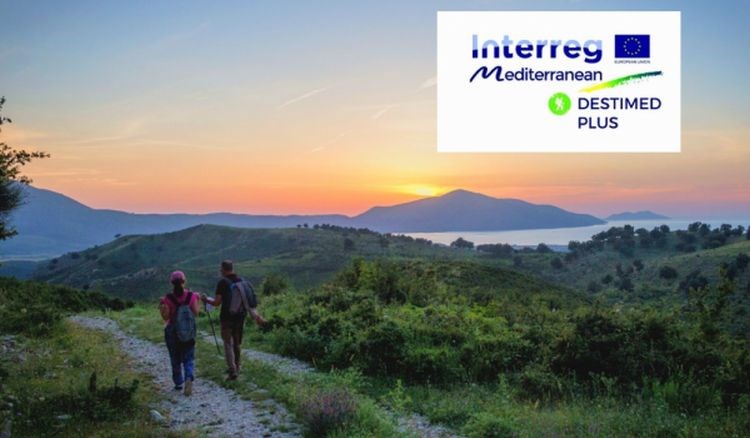Select foreign experts, gathered around the international project InterregDestiMed Plus, are evaluating a new eco-tourism package tour and testing its sustainability on the northern Adriatic island of Lošinj, which is the first such international test in Croatia.
The Zagreb-based Tourism Institute, which is taking part in the project, said that the project was about the professional testing of the footprint of the eco-tourism package tour in the Cres-Lošinj protected area (Natura 2000), designed in cooperation between local, regional and national partners.
The Tourism Institute in 2019 joined the Interreg DestiMed Plus project "Ecotourism in Mediterranean Destinations: From Monitoring and Planning to Promotion and Policy Support", which has been implemented simultaneously in Mediterranean protected areas and involves 12 project partners from Italy, Greece, Spain, France, Albania and Croatia.
The island of Lošinj was chosen as the pilot destination in Croatia, being an integral part of the Cres-Lošinj maritime area protected under the Natura 2000 network and a leader in sustainable tourism in Croatia, the Institute said.
The package tours for each of the selected protected areas are tested, improved and adapted to market needs with the help of the ecological footprint indicator and other sustainability indicators.
"By carrying out practical measurement instead of only giving expected recommendations, an attempt is being made to reduce the negative impact of tourism on the environment, economy and local community," the Institute said, noting that this week Lošinj would host a modern travel simulation whose eco standard will be measured by independent travellers.
Travellers from different walks of life from several Mediterranean countries will test a carefully designed all-inclusive eco package in the Cres-Lošinj protected area, created for the market of experienced, solvent, ecologically responsible and adventure-seeking middle-aged travellers from English and German-speaking areas who enjoy a combination of outdoor activities and psychophysical rest, local gastronomy, culture, nature and tradition as well as interaction with the local population through various events.
Taking place outside the peak season, the project is also important for extending the tourism season, while income stays in the local community, with the involvement of an increasing number of local service providers, who have recognised the quality and long-term value of this tourism product, to be available on the tourism market in the future.
(Hina)
News


